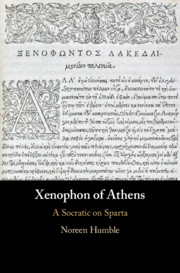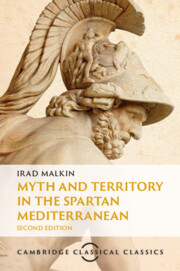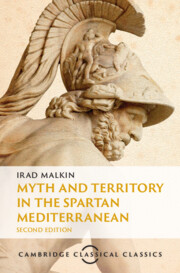Xenophon of Athens
Xenophon of Athens (c. 430–354 BCE) has long been considered an uncritical admirer of Sparta who hero-worships the Spartan King Agesilaus and eulogises Spartan practices in his Lacedaimoniôn Politeia. By examining his own self-descriptions - especially where he portrays himself as conversing with Socrates and falling short in his appreciation of Socrates' advice - this book finds in Xenophon's overall writing project a Socratic response to his exile and situates his writings about Sparta within this framework. It presents a detailed reading of the Lacedaimoniôn Politeia as a critical and philosophical examination of Spartan socio-cultural practices. Evidence from his own Hellenica, Anabasis and Agesilaus is shown to confirm Xenophon's analysis of the weaknesses in the Spartan system, and that he is not enamoured of Agesilaus. Finally, a comparison with contemporary Athenian responses to Sparta, shows remarkable points of convergence with his fellow Socratic Plato, as well as connections with Isocrates too.
- Provides a detailed new reading of Xenophon's Lacedaimoniôn Politeia, including a text and new translation
- Situates Xenophon's oeuvre as a whole within a biographical framework, setting his encounters with Socrates at the heart of his writing project
- Argues that Xenophon adopted a much more critical view of Sparta than has usually been assumed
Product details
December 2021Hardback
9781108479974
380 pages
236 × 157 × 27 mm
0.723kg
Available
Table of Contents
- Preface
- List of Abbreviations
- Note on Spelling Conventions
- Introduction
- Part I. 1. Xenophon and his Literary Project
- 2. The Lacedaimoniôn Politeia: Theories, Problems, Assumptions
- Part II. 3. Reading Lacedaimoniôn Politeia 1-4
- 4. Reading Lacedaimoniôn Politeia 5-10
- 5. Reading Lacedaimoniôn Politeia 11-15
- Part III. 6. The Place of the Lacedaimoniôn Politeia within Xenophon's Literary Project
- 7. Xenophon, Plato and Isocrates
- Conclusion
- Appendix: Text and Translation of the Lacedaimoniôn Politeia
- Bibliography
- Index locorum
- General Index.





